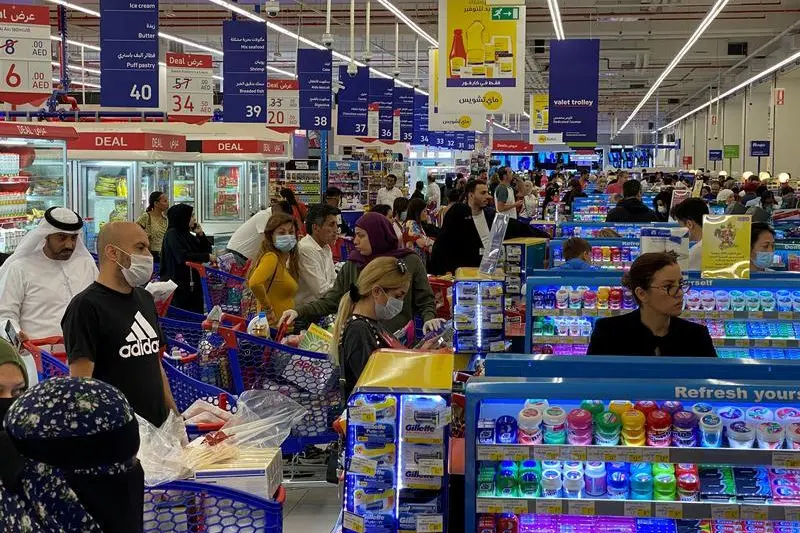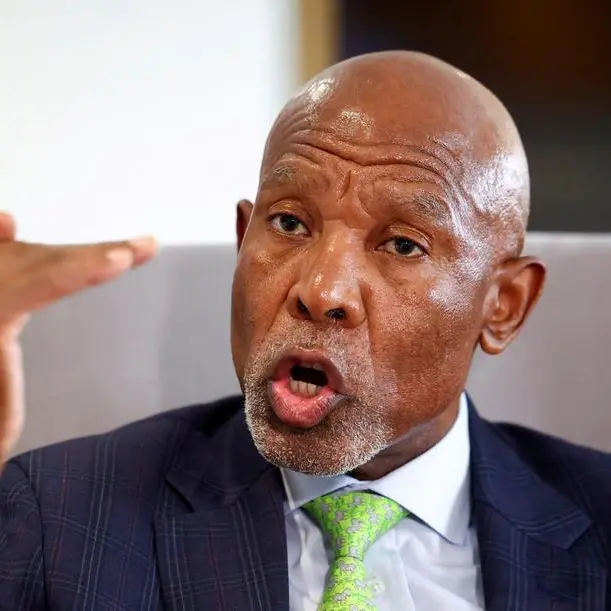PHOTO
Consumers in the UAE and Saudi Arabia are reining in their spending to cut costs and save money, as the economic uncertainty brought on by the coronavirus pandemic continues, according to new research reports.
Nearly half (47 percent) of respondents polled in a survey commissioned by Dubai-based Al-Futtaim Malls acknowledged that they now put value for money first when deciding where to shop, while 48 percent look for more offers and deals than before.
In Saudi Arabia, nine in ten people have cut their spending to prioritise needs over wants, according to a research by media buying specialist Choueiri Group. Seven in ten residents in the kingdom said they are no longer buying luxury items and furniture these days, and most shoppers open their wallets only to buy groceries (93 percent), pharmaceuticals (85 percent) and cleaning products (84 percent).
“Many Saudi shoppers are struggling with the current economic crisis… Consumers are feeling increasingly pressured by the financial implications of the pandemic, which in turn has brought about changes in the way they shop,” Choueiri Group said in its report.
Consumer spending is historically one of the major drivers for economic growth, accounting for about 45 percent of the UAE’s gross domestic product (GDP) as of 2017, according to Dubai Chamber of Commerce. Spending was previously expected to exceed $261 billion in 2021, up from $183 billion in 2016.
However, the latest data suggest that consumer spending across the world has plummeted as people’s habits changed as a result of the coronavirus pandemic. “As consumers grapple with uncertainty, their buying behaviour becomes more erratic. What is clear… is that they have reduced spending on all non-essential products and services,” the World Economic Forum (WEF) said in a report this year.
“Beyond impacting some of the factors that determine consumer spend – such as consumer confidence, unemployment levels, or the cost of living – the COVID-19 pandemic has also drastically altered how and where consumers choose to spend their hard-earned cash,” WEF said.
It noted that the industries that are in the red, or those that have been hit hard by reduced consumer spending, include travel and transport and apparel.
New habits
In Al Futtaim’s research, nearly seven in ten people (67 percent) said their household income has been impacted due to the pandemic. Consequently, researchers found that spending decisions are now largely driven by the perceived value that consumers get for their money.
The study, which covered 1,000 respondents, was commissioned to understand the needs of consumers in the UAE market and how their spending habits have changed in the post-COVID era.
The findings also showed that consumers now value the importance of a loyalty or rewards card, with one quarter of those surveyed saying they are missing out on money-saving opportunities because they don’t have one.
“This survey tells us that [shoppers] want retailers to provide value, rewards and incentives,” said Timothy Earnest, group director at Al-Futtaim Malls.
Saudi Arabia
In Saudi Arabia, consumers are particularly mindful about what they take home after a shopping trip. Among all categories, furniture and luxury items witnessed the biggest cuts in spending among Saudi customers, with 71 percent of them saying they are no longer buying them.
E-shopping, however, has seen a “rapid spike in growth”, with more than half of the residents in the kingdom now buying their goods online.
Among the e-shoppers in Saudi Arabia, 25 percent said they only started buying online as a result of the pandemic. About 20 percent of the buyers said they now shop online more frequently, and 32 percent said they are buying products they never bought online in the past.
The research found that financial concerns play a major role in consumers’ choices, especially when it comes to choosing where to shop online. About 63 percent of the e-shoppers said competitive prices are a top priority, followed by free shipping (53 percent), fast delivery (45 percent) and good offers/ promotions (44 percent).
It might take until late next year before consumers return to their old spending habits, according to Rabia Yasmeen, senior research analyst at Euromonitor, but a major risk to recovery is the departure of expatriates in the Gulf who have lost their jobs due to the pandemic.
“Consumer spending can recover towards late 2021… [but] the overall exodus of expats would be a key factor impacting consumer expenditure in the short term,” Yasmeen told Zawya in June.
(Reporting by Cleofe Maceda; editing by Seban Scaria)
Disclaimer: This article is provided for informational purposes only. The content does not provide tax, legal or investment advice or opinion regarding the suitability, value or profitability of any particular security, portfolio or investment strategy. Read our full disclaimer policy here.
© ZAWYA 2020





















